|
The past two months we have gotten to celebrate the feast days of many incredibly saints who can be role models for us throughout all the ups and downs of life. This September is no different. As we transition out of summer and enter into new routines in the midst of the continuing pandemic, we can turn to many of the saints this month who are known for their healing and ability to help others grow in their faith. Saints Known for Physical Healing Earlier this month on September 1st, we celebrated the feast of St. Giles. I had never heard of St. Giles until I read a blog post, from the early days of the coronavirus pandemic, about the 14 Holy Helpers. But the more I got to learn about St. Giles, the more his life inspired my own personal faith journey. Even though an injury crippled one of his legs, St. Giles was known for his miracle-working abilities for those who came to him. His mission as a miracle-worker was always centered on others, not himself. A similar selflessness was seen by two martyrs in the early Church, Sts. Cosmas and Damian, whose feast we will celebrate on September 26th. They both were doctors and did not accept payment for any of their services, recognizing the humanity in each person. They utilized their God-given skills to help anyone in need, which led them to become recognized as the patron saints of physicians. All three of these saints remind me that while this world is not our final destination, taking care of our earthly bodies remains very important. In whatever way we may need physical healing, God is eager to hear us and to help us physically as we continue to live out His mission here on Earth. Saints Known for Spiritual Healing Next week, we will celebrate the feast of Our Lady of Sorrows. The Marian feast of Our Lady of Sorrows is special because it is about the spiritual turmoil Mary experienced during her life. This is why Our Lady of Sorrows is typically represented by seven daggers piercing her heart. For me, Our Lady of Sorrows is not just about praying for the intercession of Mary, but also placing our complete trust in the Lord, just like she did throughout the sorrows in her life. This trust was also central to St. Padre Pio’s ministry. He recognized the need for spiritual healing and committed to hearing Confessions, and he understood the significant act of faith it took to go to Confession. Through the intercession of Our Lady of Sorrows and St. Padre Pio, may we take time this month to trust God with spiritual healing in our lives. Role Model Saints for Spiritual Growth This month is bookended by two saints who are role models for integrating spiritual growth into the activities of their daily life: St. Teresa of Calcutta, whose feast was celebrated on September 5th, and St. Vincent de Paul, whose feast will be celebrated on September 27th. The interesting thing about these saints is that they both could have fallen into the categories of physical healing or spiritual healing. But for me, these well-known saints have been role models for integrating caring for other people with spiritual growth. It seems easy to get so focused on our work that we forget the deeper meaning behind it. Mother Teresa and St. Vincent de Paul worked to help those in need, and they saw Christ in everyone and in every task they did. While we may not be feeding the poor of Calcutta every day, we too can try to grow spiritually by seeing Christ in every aspect of our day. As we continue throughout this month of September, let us ask for the saints’ intercession for healing and learn from their lives in order to grow closer to Christ. To learn more about the saints, visit our Catholic Feast Days Website by clicking here. To view a calendar of the feast days in September, and each month, click here.
0 Comments
I recently learned that a medical condition (that I have suffered from for most of my life) might be greatly improved or even completely healed via a major diet overhaul. Although I may one day be able to reintroduce some foods back into my diet, it is difficult for me to face giving up many of my favorite foods for several months, years, or even forever.
On reflecting and praying about my reluctance and fear about this daunting task, I realized that my personal struggle with my physical health is analogous to the human soul’s struggle with concupiscence and sinfulness. My body has been growing progressively sicker over nearly two decades, with symptoms that none of my previous doctors had been able to explain. But I have been so sick for so long that there were times (usually in between the worst flare ups) that I convinced myself everything was manageable, or even that it was all totally fine and normal. But during the worst flare ups—whose pain or duration I could never anticipate and for which I never had any warning—I would be in so much pain that I could sometimes barely function. In a similar way, mankind clings to sin. Why do we hesitate to put aside the things that keep us from God? Why is it so hard for us to simply reject our sins and turn to a deeper relationship with our loving Creator? Like me with my medical condition, I think we can become so used to our vices—to how it feels for our souls to be sick from repetitive sins—that we convince ourselves that turning back to God and casting aside our sinful habits is too difficult and would not make us any more joyful or free. Choosing the healthier or holier life is difficult. Establishing good habits always seems to take more effort than establishing or sliding back into bad ones. Of course, it does not help that temptations abound in the temporal world; inflammatory foods are the easiest and cheapest things at the grocery store and are laced throughout restaurant menus. Likewise with temptations to sin: the ubiquity of screens and social media, which can create barriers to personal relationships and wipe out our daily prayer times; the constant push to place religious devotion with devotion to ‘things’, the pressure to ignore the natural moral order in favor of the self and the self’s pleasures. Because we are a fallen race, we often seem incapable of rejecting short-term pleasure in favor of long-term gain. I know my health will drastically improve if I permanently remove the inflammation-triggering causes from my life, but somehow the very process—the sacrifice itself and the initial withdrawal I will surely feel as I miss that old diet—seems like too much to bear. How can I ever survive without donuts after Mass sometimes? How can I possibly stop eating cheese? Maybe I can just take a pill instead and keep on living my life how I want to. It’s like this with our vices, too: How can I give up this behavior or this selfishness that is rooted in my heart? I know I should put down my phone and pray, but I’ll do that in five minutes (or thirty, or sixty). There isn’t really any need to change my lifestyle to be a stronger follower of Christ, is there? And besides, wouldn’t my hundreds of Instagram followers miss me if I stop posting photos five times a day? Entering into a deeper relationship with God demands radical changes of us. I eventually realized that my physical health is also tied to my spiritual health. God gave me this unique body, fearfully and wonderfully made in His own image, and it is my responsibility to care for that gift by treating it well—by seeking to heal it in the ways that are available to me and to which God has slowly led me over the past ten years. If I know that my soul is sick—and that more stuff, more screen time, and more licentiousness are not going to heal me—should I not put my sinfulness or woundedness into the hands of the God who will heal me? Maybe it will take years for my body to heal. Maybe there are some things that I will never eat again, while others I will be able to tolerate on occasion or even fully reincorporate into my daily diet. But, in physical as well as spiritual health, I won’t ever find out what it feels like to be healed unless I commit to getting rid of the things that are holding me back. As a Catholic of African descent, I am honored and privileged by this unique opportunity to discuss the beautifully diverse Catholic Church throughout the world, the significant contributions that those of every ethnic background have made in building up the Body of Christ, and how we can arrive at racial healing and reconciliation. The Catholic Church is made up of the faithful of every ethnic background, the young and old, both male and female, and several distinct cultural settings. In other words, we Catholics come from every realm of the human experience, and are united in our baptismal fidelity. As a black Catholic, my religious heritage spans all the way back to biblical times, including when Saint Philip the Apostle brought the Good News of Jesus Christ down into Ethiopia (see Acts:8:26-40). Both African and African-American saints, including those in this extensive list from Catholic Online, have enriched the Church for nearly two millennia. Likewise, the modern era features some black candidates for sainthood, including those appearing in the United States Conference of Catholic Bishops’ webpage titled “On the Path to Sainthood: Leaders of African Descent.” I encourage everyone of good will to read through the biographies of the figures listed in both of those sites, in order to gain a greater appreciation for the manifold ways that they have built up the Body of Christ, per the Apostle Paul’s Letter to the Romans: “For as in one body we have many parts, and all the parts do not have the same function, so we, though many, are one body in Christ, and individually parts of one another” (Romans 12:4-5). The calendar year 2020 brought numerous challenges to those of every faith, both in the United States and around the globe, as the world confronted the COVID-19 pandemic and matters of racial discord were brought to the fore in the United States. I think often of how far we have come as a nation in terms of fostering peace and harmony between people of every ethnic background here in the United States. For instance, my father, Charles McClain, Sr., who was born in Durham, North Carolina, in 1936, and lived under segregation well into his early adulthood, probably did not fathom during his youth that he would one day see three of his sons (my brother Eric, my brother Jaris, and me) go on to marry white women. We can attest that this is, in a way, a fulfillment of Rev. Dr. Martin Luther King, Jr.’s, affirmation from his “I Have a Dream” speech of August 28, 1963, declaring that “I have a dream that that my four little children will one day live in a nation where they will not be judged by the color of their skin, but by the content of their character,” and that “one day… little black boys and black girls will be able to join hands with little white boys and white girls as sisters and brothers.” Yet, as with many quests for justice, this is easier said than done. However, since we profess our faith in Jesus Christ, we have inspiration from the Gospel, since Jesus commands (not suggests) to “love your neighbor as yourself” (Mark 12:31), and to “do to others as you would have them do to you” (Luke 6:31). To facilitate healing and reconciliation, we must have best intentions and give others the benefit of the doubt when they are striving to learn more about their brethren of other ethnic backgrounds and cultures. As such, every endeavor in this regard should be marked by true charity and prayer prior to the initiation of any sociopolitical engagement, all of which must be informed by the Gospel and its imperatives if we are to call ourselves disciples of Jesus Christ. For this reason, I urge the faithful to read books on racial reconciliation and healing from a Christ-centered perspective. A couple of books that come to mind are Joseph Pearce’s Race with the Devil: My Journey from Racial Hatred to Rational Love (TAN Books, 2013) and the late Fr. Ubald Rugirangoga’s Forgiveness Makes You Free: A Dramatic Story of Healing and Reconciliation from the Heart of Rwanda (Ave Maria Press, 2019). Of note, Fr. Ubald passed away from complications related to COVID-19 on January 7. You can read more about his life and ministry in this tribute provided by Ave Maria Press. I love teaching my children and students about being an African-American Catholic, just as I enjoy learning about my wife’s Irish-American Catholic heritage and many other avenues of cultural diversity within the Church. Let us draw each other to embrace the sacramental life and the Church’s timeless moral standards in order to reinforce the Body of Christ. May God bless you.
The family is the environment in which we learn to relate to others, where we are cared for and loved. But it can also be a laboratory for sadness, bruising, and wounding. Moments of grace separate one from the other. Mere humans living together in close proximity in the home, sharing the nitty gritty of life, is full of all kinds of challenges! How many times do we have a misunderstanding and have the sense to apologize? Dealing with people is messy business and hurt happens. It is heroic to operate in the grace of the Holy Spirit to ask forgiveness when we hurt one another. The simple ability to look past our own feelings and see how we impact others – that is life-changing behavior. “I’m sorry that what I did was hurtful to you. Please forgive me”—this is humility, and when we operate at this level within our family, we can change the world. As I see it, the two most important virtues of a holy family are patience and forgiveness. Thank goodness perfection is not required, just steadfastness.
The readings from the Mass for the feast of the Holy Family, which we celebrated on the first Sunday after Christmas, are beautiful reminders of how to behave and interact with each other in our families. “God sets a father in honor over his children; a mother’s authority he confirms over her sons. He who honors his father atones for sins; he stores up riches who reveres his mother. He who honors his father is gladdened by children, and when he prays he is heard. He who reveres his father will live a long life; he obeys God who brings comfort to his mother. My son, take care of your father when he is old; grieve him not long as he lives. Even if his mind fail, be considerate with him; revile him not in the fullness of our strength. For kindness to a father will not be forgotten, it will serve as a sin offering-it will take lasting root.” Sirach 3:2-7, 12-14 This passage expounds on the fourth commandment because Jesus wanted us to understand the importance of family as the cornerstone of society. In her acceptance speech for the Nobel Peace Prize in 1979, Saint Mother Teresa said, “My prayer for you is that truth will bring prayer in our homes..[and] we will begin to love. And we will love naturally, we will try to do something. First in our own home, [then the] next door neighbor in the country we live, [then] in the whole world.” In our progressed world, we think of evangelization and mission in terms of global work, but we cannot achieve spreading the faith if we do not practice in our own families. Colossians 3:12-21 gives us further practical instruction on how to relate to one another. “As the chosen of God, then, the holy people whom he loves, you are to be clothed in heartfelt compassion, in generosity and humility, gentleness and patience. Bear with one another; forgive each other. The Lord has forgiven you; now you must do the same. Over all these clothes, put on love, the perfect bond. And may the peace of Christ reign in your hearts, because it is for this that you were called together in one body. Always be thankful. Let the Word of Christ in all its richness, find a home with you. Teach each other, and advise each other, in all wisdom. And whatever you say or do, let it be in the name of the Lord Jesus, in thanksgiving to God the Father through Him. Wives, be subject to your husbands, as you should in the Lord. Husbands, love your wives and do not be sharp with them. Children, be obedient to your parents always, because that is what will please the Lord. Parents, do not irritate your children or they will lose heart.” What makes the family so extraordinary is all the goodness that can come when we learn to love. We die to self in saying we are sorry for our offenses. We grow in virtue when we focus on the needs of others instead of ourselves. A quote often attributed to G.K. Chesterton states, “The most extraordinary thing in the world is an ordinary man and an ordinary woman and their ordinary children.” God has set an incredible task before us – to love the people in our family through our actions and our attitude. This is the heart of radical evangelization. And it will change the world! For more resources on marriage and family, please click here. I believed the lie since I was small. I was only 10-years-old when my experience carved a wounding message into my heart: I would not be taken care of by anyone but myself. I was on my own. The lie ensnared me as my dad withered away. He was weak, fragile, and powerless, but it hadn’t always been that way. He had once stood like a great tree: strong, a protector who covered me with his mighty branches. By the time he was diagnosed, he had already begun to fade. I once climbed into his arms for safety, but he could no longer bear the weight of my tiny frame. When he passed, I, however unconsciously, decided that the only way to protect myself from the pain of being left alone was to choose independent solitude. “I’ve got it under control” became my most used phrase. If I refused the support and care offered to me, then I would not risk the pain of losing love when it inevitably let me down. Like a black hole, the lie swallowed me up and trapped me, even into adulthood. The birth of my first child was shadowed by the fear that he might be taken from me. Could I dare to love someone so fragile? Though my marriage is a gift of redemption, I still fought the discomfort of allowing another into the most intimate corners of my heart. I was hiding behind a thick wall of I-can-do-it-all-alone. Satan loves this wound. It is easily infected, and I was at constant risk of being overcome. The years I spent believing the lie are the same years I spent being invited to freedom in Christ by people who love me. Because of their care, I knew who He was and that He was good. I was only unsure that He was good to me. However, the years of isolation and masked strength wore me down. I was being crushed by the weight of loneliness, and I needed to be saved. So I surrendered. Carefully, I relaxed into the arms of Emmanuel. When I laid down my defense, I could see beyond the wall I had built. There was my God, and He was fighting an Enemy who cannot overcome Him. He saw me, invited me to lay my hurt at the Cross, and He cleansed me with Truth: I am the daughter of a Father who never leaves and never fails. I fight each day to remain in that Truth, remembering the ways He has fought for me and trusting that He will show up for me again. The wounding message I received is not gone, but I no longer carry it alone. I will not completely understand the role of the wounds I carry while on this side of Heaven, but I understand this: He knew that I would need to seek after Him for healing, and that when I did I would fall in love with the Healer. When I am tempted to turn away from the Lord out of my wrong belief that I stand alone, I am reminded that He designed me to depend upon His grace. As I entrust my fragile heart to God’s care, I receive His good from life’s bad. He offers better protection than the walls around my heart ever could. Romans 8:28 says, “We know that in all things God works for the good of those who love Him, who have been called according to His purpose.” Dear one, I invite you to surrender to Him. Allow him to fight for you. Get to know Him as you do. Be patient-- with God, and with yourself as He shows you how to accept love and care. The Father can and will produce goodness out of what you give Him. There is freedom in the healing. If you enjoyed this post, we invite you to read Participating in Our Own Redemption and Seeking Healing and Living in Right Relationship.
“The beginning of all effort is the recognition of what is.” -Romano Guardini, Learning the Virtues That Lead You to God, 1963 Professional athletes do many appearances while playing. We get paid to show up at fundraisers, youth camps, watch parties, and promotional events. Something that is practically a guarantee when attending these appearances is one or more sets of parents coming up to tell us about their child who plays soccer. Often these conversations are quite enjoyable, but almost inevitably, there are a few who want to talk about how their son or daughter was short-changed in their youth soccer experience. There is a lot that these parents say to us, but the consistent element is: my child didn’t succeed because of some external factor. This may very well be the case for some of them. It is equally true, however, that it is certainly not the case for all of them. Much of the time the boy or girl just wasn’t good enough for a particular team, level of competition, or system of play. The point of this post is not to drop the heavy hammer that many kids run out of the athletic ability rope and should give up. No, this post is about the absolute necessity of taking an honest stock of where someone actually is--especially for the spiritual life. Romano Gaurdini says that “the beginning of all effort is the recognition of what is.” The reason for this being that you cannot begin making the effort to improve unless you start with who you already are. Any professional athlete will tell you that it is far more helpful to be taught how to assess and address weaknesses rather than to pretend they don’t exist. In fact, most professional athletes are fairly obsessive about identifying areas in their game where they can improve. If I determine I’d like to be a better shooter with my right foot, for example, then I must begin with the harsh—but necessary—reality that I can barely complete a pass with my right foot. If I never acknowledge my current ability, I’ll constantly run into problems—poor technique, inadequate fundamentals, and so on. I’ll never become a strong shooter without addressing the plain truth of my current ability. This is a skill that requires disciplined practice and will never simply be acquired because I want it to be so. First comes acknowledgment, then a plan for improvement, all for the hope of becoming a good right-footed shooter. This same principle can and should be applied to our spiritual lives. Just as improvement can only take place in athletics by beginning with where an athlete currently is, spiritual advancement can only begin by taking an honest assessment of where one currently is in relation to God. This means you’re far better off admitting that you struggle to pray for 5 minutes and taking that to God than wondering when you’ll receive the Stigmata. It is far more helpful to search deep within yourself and locate and name your pride, selfishness, ego, envy, or lust than only present to God your most pious and holy thoughts. He knows your heart already—He’s just waiting for you to know it as well. One of the most helpful exercises for high-school, collegiate, and professional athletes is to watch film in order to identify strengths and weaknesses. The team watches the most recent game in order to see what needs to be addressed that week in practice. This same concept can migrate into our spiritual lives—we look for points of departure and development in order to draw nearer to God. This practice is not to discourage but to improve. There’s no shame in acknowledging ourselves as we really are. In fact, God can really only begin to heal us once we acknowledge where we are hurt. The Physician cannot tend to our wounds unless we let Him see them. Several days ago, I was talking to my wife about this concept and she brought up how watching film for athletes is similar to the examination of conscience recommended by the Church. Examining one’s conscience on a regular basis is like looking back over the tape to see the strengths and the weaknesses—the graces and the sins—in order to grow. Then, with this self-knowledge, we can go to God, say thank you, and ask for forgiveness, trusting in His merciful love. God looks down on us and loves us as we are, but He also promises that His love is transformative. He looks down and says, “I love you,” while at the same time calling us higher. He wants us to identify what is so that we may cooperate with His grace and begin the beautiful work of improvement. This we call sanctification. May we all be willing to look at ourselves honestly—as we really are—so that we enter into the effort that is the fight of faith (cf Jude 3), trust that God’s grace is sufficient (see 2 Cor 12:9), and become the saints Jesus Christ died for us to be.
It was my spiritual director who first introduced me to the phrase new normal which has since become quite common in the days of COVID-19. At the time I learned this phrase, my Dad was sick, the situation was changing by the day, and my spiritual director shared a piece of wisdom with me: clinging to the past with no regard to where we stand in the present, let alone where we will stand in the future, is of little good. This doesn’t mean that we can’t look back fondly on memories and experiences—we should—but sometimes it’s necessary to shift our gaze from what was normal to what is our new normal. Turn on the news and we’re bound to hear this phrase mentioned. The elimination of handshakes, added temperature screenings before flying or entering large venues, social distancing—these are all changes that are tossed around as potential aspects of our new normal. Inherent to the new normal is grieving the loss of what used to be normal. On a recent podcast, Brené Brown, a research professor and speaker, spoke with David Kessler, an author and expert on death and grief, about how we, as a world, are collectively grieving during COVID-19. Their first premise is that we must name our grief before we can take it on. As we look to a new normal, we will likely find ourselves grieving many of the simple acts we might have taken for granted. So many of these aspects of our new normal are so far into the future and so uncertain that it might not be fitting for us to focus on them for too long lest we begin to fear for something not even guaranteed for the future. That doesn’t mean that we are not still mourning the loss of our normal and experiencing a new normal every single day. I celebrated my best friend’s birthday last week by sitting 12 feet apart and talking from a distance without even being able to share a hug. For those who have loved ones in hospitals or nursing homes, the difficult and sometimes downright terrifying new normal is not being able to visit them, to comfort them, or to be comforted ourselves. Our new normal might include grieving not being able to go to the store because it’s closed or because we are considered high risk if we contract the virus. In one way or another, we are all facing a new normal, but we must fight the urge to compare whose new normal is worse or more challenging. The necessity to find a new normal isn’t new in itself. After 9/11, we were also forced into a new normal. The same occurred after World War I, World War II, the Spanish Flu, The French Revolution, and the Great Plague which all forced society to adopt a “new normal”. A new normal, however, doesn’t have to be a bad thing. The printing press, the steam engine, and the discovery of penicillin all created a new normal that we are thankful for. Of course, the greatest events which created a new normal were the life, death, and Resurrection of our Lord, Jesus Christ. Think of the Apostles, such as James and John, who were called from a fishing boat to follow Jesus. Their entire conception of normal changed forever in that instance. As our Lord hung from the Cross on Good Friday, the world (especially that of the disciples) faced a new normal. How dejected afterwards were the two on the Road to Emmaus with their new normal, one that seemed to go on without the man they had come to know as the Messiah? Then of course, Jesus rose on the third day; He had defeated sin and death, and an eternal new normal was ushered into the world. That is the new normal which we can turn to in every moment when our lives are forced into a new normal we may not have asked for. Jesus Christ, God made flesh, He who was and is and is to come, gave all of creation a new normal which rings eternal. Nothing that happens in our world can change what He did for us in His life, death, and Resurrection. We are faced with a constantly changing new normal and we have to name our grief and understand that some of what we once knew is no longer our normal. In doing so, may we always be rooted in Christ who stands above the chaos as the rock of our salvation.
 This Easter season, I have been thinking a lot about my late brother Tim, who died in an accident seven years ago - at the age of 24 - while serving as an EMT in Indianapolis, IN. Tim’s death, along with the death of his IEMS partner Cody Medley, left all their friends and families at an inestimable loss. While I never got to meet Cody personally, I have learned that he was an exceptionally driven and talented young person who also served as a fire cadet before becoming a paramedic. Tim’s story is not much different; he was an Eagle Scout and volunteer EMS before going professional and passing his paramedic certification shortly before he died. In life, Tim achieved success in almost every field. As a teenager he won academic and musical scholarships and posted regular five-minute miles in outdoor and indoor track. He mastered Mandarin and spent an immersion summer in Shanghai. He participated in a service trip to Jamaica and volunteered back home as a “running buddy” alongside students with special needs in Central Park. These successes, paired with his later commitment to the medical profession, truly made him “A Man for Others” – the Jesuit motto of his alma mater, NYC’s Regis High School. Only looking backwards have I come to appreciate how brilliant Tim was. Perhaps you have a similar person in your family – someone who is so smart that they are intimidating. Tim was fearless in challenging others (especially those in authority) when he thought they were wrong. I have thought of him throughout this entire pandemic. As a first responder, I know that he would be helping wherever help was needed. As the outspoken person he was, I know he would have choice words for those he felt were ignoring public safety protocols. And most of all, as a cuttingly funny person, I know he would help me laugh during this time. Tim died three days into Lent, on February 16th, 2013. I have remembered him especially during every Lent and Easter since then. This past Lent was perhaps the most difficult yet. Many say that it takes seven years to heal from losing a loved one. The year 2020 marks seven years for all who loved Tim. To me, I felt healing – which also meant letting my guard down to feel fully the pangs of loss I couldn’t afford to feel in 2013. The coronavirus situation, if nothing else, has clarified the relationship between life and death. We are all vulnerable humans. This can be a scary thought, but also a freeing one. This can be a time to meditate on life as what it is – a short chance to grow, love, and serve others. We do not know how long the journey will last. I sometimes think that my brother attacked life the way he did because he might have sensed that he had less time than others. He used to wake me up after midnight, for instance, after I had already gone to bed, and say “Come on bro, get up, let’s make some memories.” At the time I thought he had a screw loose. Now I think he was prophetic. Recently in the Gospel readings, we hear Jesus tell the disciples, “Peace I leave with you; my peace I give to you. Not as the world gives do I give it to you. Do not let your hearts be troubled or afraid.” These words are a balm to all of us who have experienced loss, or who fear loss during these challenging times. As I read this passage, I am touched by the care and concern Jesus shows for his followers. He is also being quite honest with them and reminding them that they will lose him. The promise of peace is made realer by the reality of loss. This is what I receive from today and feel to be true in my own life. One year after Tim’s death, on Easter Sunday 2014, my family went to Mass in a church we had never been to before. The previous year had been difficult for everyone. Personally, I had not been taking care of myself mentally, physically, or spiritually. In the prior twelve months, I had not felt anything approaching peace. I was experiencing great fear and having awful panic attacks. That morning, sitting in the pews, waiting for Mass to begin, I suddenly noticed all sound around me fade out. I felt a sensation of all the breath leaving my body – and then my next breath was a slow, purposeful breath that was like drinking cool water in the desert. I was able to begin breathing in a deep and rhythmic way. Over the next few minutes, I felt as if warm light was streaming over me, from the head down. It was a feeling of complete release and relief. Ever since, I’ve been hoping to feel that peace again. Like my brother, I doubted (and still doubt) aspects of my faith. Tim wrestled to understand people who believe that faith and the intellectual life are incompatible. Being the true original that he was, I think he found it difficult at times to imagine a place in Christianity where he fit in. Yet after his death, I learned that some of Tim’s recent writings and reflections expressed the faith of a mature man who trusted in a loving God. I reflect on his words often as I remember my “kid brother” - who responded to numerous life-or-death situations and treated severe injuries which I would be terrified to walk into. Like everything else, Tim’s faith journey happened at a rate and intensity that most of us will never know. As Easter moves on and we navigate the new normal that is COVID-19, my spiritual suggestion (for what it’s worth) is this: In your prayers, dreams, and doings, try to let fear and hope co-exist. I will try to do the same. If we can hold those two seemingly irreconcilable opposites, we may find that peace can sprout like a flower right in between our hands. 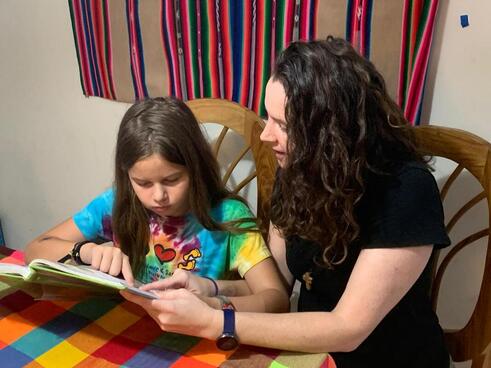 Like most of you, my family and I have been in quarantine. When El Salvador’s President Nayib Bukele first announced the prospect of a quarantine—before there were any confirmed cases here—our family decided that it would be best to practice physical distancing right away. The public hospital system here in El Salvador is precarious under normal circumstances, and once the virus is at its peak, it won’t matter how much money you have. If you require a hospital bed, you will go where there is one available. The national convention center in San Salvador is being converted into a 3,000-bed hospital, with 1,000 of those beds designated for intensive-care patients. Our best bet for surviving this pandemic is to stay home and find ways to continue our relationships with the people at our ministries without being physically present—a challenge, but also an opportunity. My ministry, the women’s cooperative ACOMUJERZA, has come to a screeching halt. We were in the middle of a huge order for the Education Ministry of El Salvador. We are sewing over 3,000 school uniforms as part of a government-funded program. This order is the biggest we have ever been contracted to make, and frankly before this pandemic our members were scrambling to figure out how we were going to sew more than 3,000 pieces in 60 days and how we were going to pay everyone to make all of those uniforms. ACOMUJERZA applied for a loan from a non-governmental organization that has helped us in the past. We received the preliminary approval for the loan, but with all of the economic uncertainty, the NGO froze all lending for the foreseeable future. ACOMUJERZA members packed up all of the finished uniforms and prepared the building for the beginning of a nationwide mandatory quarantine on Saturday, March 21. There is so much uncertainty, and yet when I talk to each of our members, they remain positive. The government has promised a government grant of $300 a month to unsalaried workers—those most in need, which applies to some of our members—but that money has not been distributed yet. With 12 days into our quarantine, I worry about how my friends at the cooperative are surviving and if they have enough food to eat. I spoke with my friend Juanita from the women’s cooperative the other day. She told me that, when she first went home after the president declared quarantine, all she wanted to do was cry. She felt depressed and sad to not be able to go to work and she felt a loss of her freedom. But after a few days, she pulled herself out of her sadness, and she told me about all of the things that she and her daughter decided to do during the mandatory quarantine. They already painted a few rooms in their house, got rid of old clothes, sewed masks and spent time tending to her garden. “Now the time just seems to be going by quickly, thanks be to God.” she said to me during our last phone call. We chatted a bit longer and before getting off the phone, she reminded me that “we are all called to do our part and, for now, our part is staying at home.” While checking over my daughter Evey’s daily journal assignment for school, I realized just how I am doing my part. She was assigned to write about what she liked and didn’t like about being homeschooled during the quarantine. She wrote, “I like homeschooling because it is fun and I get to do more fun stuff with my mom.” Maybe “doing my part” is keeping spirits up among the members of the cooperative, sharing my gifts and talents with Maryknoll Lay Missioners, spending more time with my children and modeling for them how to adjust to an ever-changing reality This blog post was re-published with permission from Maryknoll Lay Missioners. To learn more about their work and mission, please click here. To learn about other faith-based service opportunities, please click here. We are living through an unprecedented time. Just a few months ago, I couldn’t have been more excited for the spring weather, finishing maternity leave, and being able to bring my now-2-month-old to visit family and friends. That is not our reality. I am devastated that I cannot share my happiest joy with people who love my son in-person. My heart breaks for my grandmother who has never met her great-grandson, for relatives who live in different states who have yet to see him face-to-face, and for the inability to even host people safely at our home. It’s painful to think about, but knowing we’re staying safe and healthy is a relief. This past Easter weekend was when we would have been traveling to visit family. Instead of focusing on the “would-haves,” I’m challenging myself to live in the “right-nows” and the “will-bes” even though it is so difficult. Right now, my little son is snuggled and sleeping sweetly near me. Right now, my family is healthy and safe from the virus. We will be able to get through this together and will be okay when this is over, although there is no timeline to lean on. Right now, God is watching over us and protecting us as he has always done and will do. The season of Easter that just began serves as joyful relief to my fearful and saddened heart. I know that when Christ died on the cross, Jesus’ disciples were experiencing these feelings, too. In Mark’s Gospel, we read about the disbelief that plagued his followers after hearing that Jesus was not in the tomb, “When they heard that he was alive and had been seen by her, they did not believe” (Mk 16: 11). Jesus’ disciples doubted and were unbelieving, like so many of us during this pandemic. But, in John 16: 22, Christ encourages, “So you also are now in anguish. But I will see you again, and your hearts will rejoice, and no one will take your joy away from you.” In Matthew’s Gospel, we furthermore hear Christ tell his disciples, “And behold, I am with you always, until the end of the age” (Mt 28: 20). With these passages in mind, I find comfort in this Easter season knowing that however inconvenienced and pained some of us are, with God at our side this will soon pass, and we can be happier than ever before. For those who share an even more difficult level of grief from losing a loved one, may you find peace in the knowledge of eternal life with the Father. In 1986, Pope Saint John Paul II spoke to Catholics in Australia saying, “We are an Easter People and Alleluia is our song!” He went on to say, “We realize that joy is demanding; it demands unselfishness; it demands a readiness to say with Mary: Be it done unto me according to thy word’”... and later goes on to implore the Blessed Mother to pray for us saying, “Help all your children to see that the good things in their lives come to them from God the Father through your Son Jesus Christ. Help them to experience in the Holy Spirit the joy which filled your own Immaculate Heart. And in the midst of the sufferings and trials of life, may they find the fullness of joy that belongs to the victory of your Crucified Son, and comes forth from his Sacred Heart. In this way, let us try to do the same.” As Easter people then, we cannot forget that during this time of great trial, our hearts already know of great sorrow followed by even greater joy. We are fortunate to be able to stay connected through this hard time with the help of social media and technology. There are so many versions of video-chatting that we can choose from. Just saying hi to someone you miss might make both of your days a little brighter. Pictures and videos of the things that you find joyful may also bring joy to someone else, so try to share the good little things with others if you can. As we look for silver linings in this pandemic, let us pause and appreciate the good things right in front of us. Gratitude is one way to ease the pain. I’m grateful for my healthy little boy, my grandmother’s health, the beautiful day outside, my dog needing snuggles, and my husband being able to work safely from home. I pray for those who are not so lucky: those who are grieving, friends and family in isolation and alone, each and every worker who is away from their own family to fight this crisis on the front lines, and those in hospitals who are infected and sick. Right now, when I get sad about plans changing and people missing out, I stop and let Christ into my heart during this Easter season. Right now, when I start thinking of the many fears and anxieties from this pandemic, I breathe and let Christ in. Through it all, I trust that God’s will be done. In this Easter season, let us rejoice in the risen Lord! We can get through this with Christ who strengthens us! The ashes of our Lenten journey were more pronounced this year—not fading with Ash Wednesday but thickening in the following weeks with the outbreak of COVID-19. Each of the plans we had for Lent—the sacrifices, the resolutions, the acts of charity—were rearranged, making room for more sacrifices than we thought possible. We sacrificed control, physical freedom, the assurance that our pantries would be stocked or that our bank accounts would be replenished. We sacrificed our physical friendships, birthday celebrations, anniversary milestones, family vacations, date nights. We’ve lost friends, family, or neighbors to a virus that until a few months ago was hardly known about or discussed. We’ve sacrificed our liturgical lives, being able to receive Christ’s Body and Blood in the Eucharist, attendance at weddings or baptisms, pastoral formation, the journey into the Church on Easter via RCIA. Pope Francis likens this pandemic to the evening storm experienced by the disciples in the boat, saying, “For weeks now it has been evening.” This evening has been long, dark, full of the unknown. Throughout this “evening,” we have had to confront our vulnerabilities and experience our littleness. We’ve had to realize that without light, we cannot see. Perhaps we’ve grappled with fear in this darkness—a fear of the unknown, a fear of isolation, a fear that the dawn may never come. Perhaps our minds have been left to imagine: Lord, “Do you not care that we are perishing?” This time of quarantine, social distancing, and pandemic has been our evening storm which, “Exposes our vulnerability and uncovers those false and superfluous certainties around which we have constructed our daily schedules…shows us how we have allowed to become dull and feeble the very things that nourish, sustain and strengthen our lives and our communities… [and] lays bare all our prepackaged ideas and forgetfulness of what nourishes our people’s souls.” We thought “we would stay healthy in a world that was sick,” but the storm has awakened us from our personal slumber. And we need light. This realization is the seed of faith—a faith which recognizes the need for salvation, for one another, for the light of God. The realization of our littleness, our helplessness, our dependence, our mortality, is the perfect place from which to enter into the Triduum and await the lighting of the Easter candle—the Resurrection of Jesus Christ. God has provided flickers of hope, reflections of grace, throughout our journey at sea: livestreams of Masses, daily Scripture reflections, broadcasts of Adoration, priests hearing Confessions in drive-thrus, virtual retreats, Pope Francis’ blessing of the entire world. We have seen a “creativity of love”--the production of ventilators in car factories, the making of masks in workplaces, the donations of money, food, and supplies across the world, the video chats to those in quarantine facing death alone. We see dancing from porch balconies. Teddy bears in windows. Embraces in hospitals. Birthday drive-bys with signs and honking. People on their knees. Yes, the light of Christ exists even in the darkness. And the darkness has not, and will not, overcome it. It will shine ablaze all the more radiantly this year in the midst of our utter darkness, sparkling in the gloom. The darker the night, the better able we are to see the light. And in the darkness, we look up. Let us welcome the light of Christ this Easter by first lighting his love in our hearts. When Christ’s life lives within us, we can enkindle it in the souls of others and set alight all we encounter. “Prayer and quiet service: these are our victorious weapons,” Pope Francis reminds us. Wake up, Lord! The disciples shouted in the midst of the storm. Wake up, Lord! The world shouts again today. Let us awaken the Lord through our prayers and service. Through our acts of charity to those suffering, tired, or scared. Through our cries and supplications. Through our fasting in these unwelcome sackcloths and seemingly perpetual ashes. Cry out with me again this Triduum, “Wake up, Lord! We are perishing.” Christ’s response to our cries this week is open arms embracing us through nails and scourging. His response to our cries is a head beaten, bruised, and crowned with thorns. His response to our cries is silence to jeers, taunts, mockery, and abandonment. His response to our cries is the relinquishing of his spirit in atonement for our sins and those of the whole world. He who cried out to his Father, “my God, my God, why have you forsaken me?” also knows the darkness intimately. He knows what it feels like to be alone and perishing. But by his words do we find the light: “Why are you terrified? Do you not yet have faith?” ….“My Father…not as I will, but as you will.” Our cries are never unheard. “The Lord awakens so as to reawaken and revive our Easter faith,” Pope Francis said. “We have an anchor: by his cross we have been saved. We have a rudder: by his cross we have been redeemed. We have a hope: by his cross we have been healed and embraced so that nothing and no one can separate us from his redeeming love.” The goal of our Lenten journey is transformation—to be transfigured. This is also our prayer throughout this pandemic. Yes, we pray that it ends, that healing comes, that daily life can resume, that economies will be restored, and that suffering will cease. But even more than all of that, we pray for transfiguration. Because when we are transfigured by the love and light of Christ, when our faith has awakened and we have realized our need for salvation, then the storm can rage on while we rest knowing we will not perish—for we will know deep in our hearts that with the “dawn there is rejoicing.” Then, and only then, “In the silence of our cities, the Easter Gospel will resound.” For more Easter and Lenten resources, please click here. For more resources and reflections on COVID-19, please click here. 4/7/2020 Cooking During COVID-19: Ten Tips for Nourishing Your Body and Soul | COVID-19 ResourceRead Now“As chefs, we know that good food provides not only nourishment, but also comfort, especially in times of crisis.” -Chef Jose Andres When Hurricane Maria hit Puerto Rico in September of 2017, there was a great need for food- not just for the necessary nourishment, but also because “good food provides. . .comfort, especially in times of crisis.” Chef Andres and his team at World Central Kitchen provided 3.7 million fresh, never pre-packaged, locally sourced meals for the people of Puerto Rico as they recovered from Hurricane Maria. While our current situation in the midst of the COVID-19 pandemic likely doesn’t call us to produce millions of meals, Chef Andres’ thesis remains true—food brings comfort, especially in times of crisis. Chefs like Jose Andres and Andrew Zimmern were a large inspiration for me to pursue a degree in Culinary Arts. They helped me to see that food is not only tasty, a way to earn a living, and a creative outlet, but that it is a way to build community, to learn about culture, and to cultivate human bonds around our tables. Despite changing the scope of my career, food still plays a big part in my life. When I cook for friends and family, we are able to be together at table, just like Jesus invites us to. I see questions every day on social media from friends asking how best to cook this or bake that, for tips and tricks, so I figured I would provide some of my tips. So here are ten tips for cooking during the pandemic, quarantine, and crisis.
3/30/2020 The 14 Holy Helpers: Turning to the Saints During the Coronavirus | COVID-19 ResourceRead NowThe other day I drove past a grocery store that had people waiting in line to get inside and stock up on food and other supplies due to the continuing spread of COVID-19. Most of us have seen pictures of empty store shelves devoid of food and medicine as people make a mad rush to make sure they have what they need to self-quarantine for an extended period.
An equally startling yet vastly different image is that of empty church pews during the numerous Sunday Masses being livestreamed from Catholic parishes around the world. Whereas the emptiness of store shelves suggests the preparedness, albeit over the top at times, of consumers, the emptiness of Church pews suggests the possibility of the Christian Faithful not having the spiritual support which they need during this pandemic. Fortunately, the Church has been through pandemics before, and an examination of our past offers insight for our days ahead. At the outset of the Bubonic plague, commonly referred to as the Black Death, Europe’s faithful sought heavenly aid to withstand the suffering caused by the plague. Various communities invoked the Blessed Mother and the saints for protection against the plague. One of the most interesting and enduring of such devotions comes from Western Germany where 14 “auxiliary saints” were venerated together as the Fourteen Holy Helpers. The Fourteen holy helpers were:
Pious legend tells of a shepherd boy receiving a vision of the 14 Holy Helpers in a field near the German town of Bad Staffelstein. After this, a church was erected on this spot and miraculous healings began to occur on account of the intercession of the Holy Helpers. A shrine church still stands in Bad Steffelstein to this day where pilgrims continue to go and seek the help of the Fourteen Holy Helpers. As this group devotion spread to other countries, new helpers were added for more popular saints in any given region including St. Nicholas, St. Sebastian, and St. Rocco (Roch). Regardless of which saints composed the group of helpers, the people of Europe implored the Helpers’ aid against the harsh symptoms of the Black Death. Today, the world once again suffers from a pandemic, the outbreak of the novel Coronavirus. Though medicine and science have surely advanced and we know much more about diseases and how they spread than medieval Europeans, maybe those Christian faithful of the past can teach us an important lesson: the lesson of faith and trust in God. As we adapt our lifestyles to work from home, social distance ourselves, and view Mass via livestream, let us not forget the great cloud of witnesses who watch over us from heaven. May we turn to their help during these challenging times. Fourteen Holy Helpers, Pray for us! Joseph Basalla is a graduate from The Catholic University of America living in the Washington, DC area. 12/19/2019 Look Up, Set Out, and Give: Learning from Mary, the Magi, and the Shepherds this Advent SeasonRead Now“The Virgin today brings into the world the Eternal / And the earth offers a cave to the Inaccessible. / The angels and shepherds praise him / And the magi advance with the star, / For you are born for us, Little Child, God eternal!” (CCC525) The quote from the Catechism above references three key players I want to reflect upon at the beginning of this Advent season: Our Lady, the magi, and the shepherds. Today, as we think about the meaning of waiting and watching, upon preparing for Christmas and for the return of the Lord, we can look to these three examples to show us how to look up, set out, and give. First: It’s important to start off with an understanding of Advent as a liturgical time of waiting and preparation. I’ve often heard that God has three responses to our prayers: yes, no, or wait—wait being our least favorite of the three. “Wait” seems so indefinite. With a yes or no response, you know, for better or worse, one way or another, what your parameters are. But “wait” requires faith, trust, humility. It requires not knowing exactly when, exactly how, or exactly if. And that’s one lesson this season can impart: waiting well, waiting in hope. During Advent, we recall the waiting of the world for the birth of the Messiah. The greatest gift from God the Father, the gift of his Son, is coming to us. And in this world which has experienced his coming, we also wait for him to come again. Each of us awaits something. Perhaps we await a promotion. The completion of a degree. Maybe we long for a spouse or a child. Physical or emotional healing. The answer to our vocational discernment. In this time of waiting, we are like the Israelites wandering in the desert in pursuit of the Promised Land. It’s there--the Promised Land is there. God is faithful and keeps his promises. But sometimes, we have to wait. Waiting practically forces us to surrender control and hand everything over to God. It’s a daily practice in humility and faith. It acknowledges that we are not in control and challenges us to trust in the goodness of the One who is. Therefore, waiting has a purpose, an end: God Himself. And, as with the Israelites in the desert sustained by the descent of manna from heaven, we are fed daily by God himself IF we allow ourselves to be. This means speaking and listening to God in prayer. It means collecting the manna from above, his grace, DAILY. And this brings us to our first point about the Advent season: we need to look up and see. Mary knew what it meant to look up in prayer. She was so receptive to the word of God that she conceived it through the power of the Holy Spirit. She was looking up in prayer when the Angel Gabriel announced the Good News of the Messiah. Her response? “Let it be done unto me according to your word.” These were the words of trust, surrender, and peace--followed by action—the second of our themes today. She looked up and set out in order to give. Immediately after the Annunciation, we read about her going out to help her cousin Elizabeth. As someone who has experienced the first trimester of pregnancy twice now, I can tell you the last thing I’m thinking about during that time is helping or serving others. I’m usually passed out somewhere trying not to drool. But Mary has looked up, set out, and given. She was so receptive to God’s word that she was able to fully encounter his message through the Angel Gabriel. Her reception of Christ caused her to set out in haste to see Elizabeth. And finally, to give and serve another by bringing Christ into that home and modeling sacrificial love. Mary is the perfect example of waiting and being guided by God. In Scripture, she is described as “pondering things in her heart”—waiting for God to reveal his will and meditating on his work throughout her life. But she is not one who sits on the sideline and fails to engage. She is a contemplative in action—one who treasures the word of God within her (even literally) and yet immediately goes out to Elizabeth in her time of need. Mary brings Jesus to others, from the moment of his conception, wherever she goes and instructs us to “do whatever he tells you,” as at the wedding feast in Cana. We turn to Mary during this season of Advent because she is an expert at faithful waiting that leads to Christ. So I invite you as we continue our Advent journey to start by spending time with the Blessed Virgin Mary. Re-read the account of the Annunciation and Visitation in Scripture. Ask her help in waiting—faithfully, hopefully, humbly. And invite her to accompany, guide, and prepare you to receive Christ. She always leads others to her Son. In addition to the example of Mary, the magi can also teach us what it means to wait in hopeful anticipation: to look up and see the star, To set out, To give freely. The magi, though Gentiles, were not complacent, but so observant that they were able to recognize God’s sign: the star. As Pope Francis said, “The Magi were not content with just getting by, with keeping afloat. They understood that to truly live, we need a lofty goal and we need to keep looking up.” What keeps us this Advent from looking up and seeing the star? Are we busy scrolling through our social media feeds, binging on the latest Netflix series, working late hours at the office, or anxious about the future? Are we paralyzed by grief, bitterness, anger or fear? The magi were vigilant, ready to go when the time came. And their hearts were receptive, disposed to the signs of the times. Like Mary, they too set out on a journey which would lead them to Christ himself. This journey required effort, planning, and sacrifice. They looked up, set out, and finally, they gave: bearing costly gifts of gold, frankincense, and myrrh. They met the generosity of God by reciprocating generosity. As Pope Francis has also noted, “To give freely, for the Lord’s sake, without expecting anything in return: this is the sure sign that we have found Jesus.” Finally, we can also look to the example of the shepherds. Pope Francis says, “They were the first because they were among the last, the outcast. And they were the first because they were awake, keeping watch in the night, guarding their flocks.” The shepherds were looking up. After receiving the good news from the angel of the Lord, they go in haste to encounter Christ. And afterwards, they return glorifying and praising God. In each of these examples, we encounter people who are looking up, setting out, and giving. Mary sets out and gives her time and energy to serve her cousin Elizabeth. The magi set out and give gifts of gold, frankincense, and myrrh. The shepherds set out and give Christ their adoration and praise. Will we keep watch in the night alongside the shepherds or are we asleep with the rest of crowded Bethlehem, too distracted by our daily lives and concerns to notice the light of the star beaming down on the light of the world? As we await God’s response in our lives, do we grumble in the desert like the Israelites? Do we take things into our own hands and craft a golden calf? Or do we say to the Lord, “Let it be done unto me according to your word?” This season, will we set out in haste to give our hearts to the Lord and our hands to serve those in need? Perhaps what’s holding us back from entering into the Advent season is something more than distraction, ignorance, or noise. We may hesitate to meet this Christ-child because we feel as the shepherds most likely did, utterly unworthy. We wear the rags of sin, the stench of humanity. Maybe we feel like the little drummer boy in the popular song who says, “I have no gift to bring that’s fit to give a king.” In his humility, the Lord entered into the most vulnerable of human states: infancy. He chose to become little in order to demonstrate that all are able and invited to approach him. As Pope Francis also reminds us, “Jesus allows himself to be found by those who seek him, but to find him we need to get up and go.” So let’s get up and go. There is still time to look for the star, to set out, to give. I invite you to draw close to Mary, look to the example of the magi, spend time with the shepherds. In looking for Christ, encountering him, and serving others, we find Christ born also in our hearts. Only then, as the Catechism says, “when Christ is formed in us will the mystery of Christmas be fulfilled” (CCC526). Let us pray, “I want to come to Bethlehem, Lord, because there you await me. I want to realize that you, lying in a manger, are the bread of my life. I need the tender fragrance of your love so that I, in turn, can be bread broken for the world. Take me upon your shoulders, Good Shepherd; loved by you, I will be able to love my brothers and sisters and to take them by the hand. Then it will be Christmas, when I can say to you: “Lord you know everything; you know that I love you” (cf. Jn 21:17)." -Pope Francis From Amoris Laetitia to Christus Vivit, one of Pope Francis’s greatest gifts to the Church has been his emphasis on spiritual accompaniment. Pope Francis has exhorted the Church to make use of accompaniment in response to sensitive pastoral situations, ailing youth ministries, and even to a humanity suffering from isolation and anonymity. Accompaniment, to Pope Francis, is a way of being in intentional relationship with another in order to lead them “ever closer to God” (EG, 170). In addition to being oriented towards leading others into closeness and intimacy with God, Pope Francis also describes accompaniment as healing, liberating, gradual, encouraging growth, and fostering freedom. Perhaps the most beautiful words that Pope Francis uses to shape the Church’s understanding and practice of accompaniment is an “art…which teaches us to remove our sandals before the sacred ground of the other” (EG, 169). What does it truly mean to “remove our sandals before the sacred ground of the other” in terms of accompaniment? How does this shape the apostolate of a mentor? A key to understanding this meaning lies in the scriptural story found in: Exodus 3—the story of Moses meeting God in the burning bush. In this story, Moses beholds an awe-inspiring sight, a bush that is on fire but unconsumed by it. He then turns to look more closely at the bush, from which comes a theophany, or an instance of God revealing God’s self to a human person. God calls out to Moses by name, to which Moses responds, “Here I am!” Before Moses can come any closer to the bush and consider it further, God exclaims to him: “Do not come near! Remove your sandals from your feet, for the place where you stand is holy ground. I am the God of your father, he continued, the God of Abraham, the God of Isaac, and the God of Jacob. Moses hid his face, for he was afraid to look at God” (Exodus 3:5-6). What are we to make of this scripture passage, especially in light of Pope Francis’s understanding of accompaniment? Firstly, the Exodus reference exhorts us to view the other we are accompanying not only with respect, but with reverence. As we begin to accompany others, we must look upon them not as receptacles to be filled with knowledge, passive recipients of teaching, or soft clay to be modeled into our own images and likeness as ministers. Instead, in accompaniment, we are called to witness to another’s belovedness as a child of God. When we enter into a relationship of accompaniment with another, we must have a posture of humility and honor before those we accompany. This posture of reverence is fundamental to a mentor’s practice of accompaniment, rendering them better able to foster a relationship that is truly transformative. Secondly, the theophany in the Exodus story gives us another clue into understanding more fully the duties of accompaniment. We must respect the accompanying relationship as a legitimate place where God reveals God’s self to both mentor and the one accompanied. Accompaniment takes seriously the fact that human experience is a space where God reveals God’s self; in other words, accompaniment affirms that the life experience of the one accompanied is “a locus for the manifestation and realization of salvation, where God consistently with the pedagogy of the Incarnation, reaches man within his grace and saves him” (General Directory for Catechesis, #152c). In a relationship of accompaniment where a mentor is asked to “remove their sandals before the sacred ground of the other,” mentors must help the ones they accompany interpret their experiences in light of scripture, discern more fully the action of God in their lives, and wait with full anticipation to respond to God’s voice in the midst of their daily life. Finally, this scriptural passage exhorts mentors to maintain and cherish the mystery of the one they accompany. As Moses hides his face before God present in the burning bush, so too must mentors respect with holy fear that which is mystery in the life of those they accompany. Though we might come to know those who we accompany well or even develop a deep bond with them, they never belong to us completely, but are instead placed in our path for a period of time so that we might help them foster connection and intimacy with God. Though we might have plans, hopes, or desires for those we accompany, we must always ensure that we respect the work of the Holy Spirit in the relationship of accompaniment. Accompaniment cannot be reduced to a neat list of objectives or learning outcomes; rather, it is a “pedagogy which will introduce people step by step to the full appropriation of the mystery” (EG, 171). True accompaniment wrestles with the intricacies of human life, cautioning mentors that “realize that each person’s situation before God and their life in grace are mysteries which no one can fully know from without” (EG, 172). As mentors, we cannot assume that we are the ones that ultimately decide how or why the Spirit moves the way it does in the life of those we accompany. Instead, we must continually reflect on how the person before us in the relationship of accompaniment is being formed not by us, but by the Holy Spirit. Accompaniment, when contemplated as an “art” that “teaches us to remove our sandals before the sacred ground of the other,” calls us to have a posture of reverence before the ones we accompany, regard their human experiences as privileged places for God to reveal God’s self, and maintain a sense of mystery in the relationship of accompaniment. How are we being called to remove our sandals before others in our life and ministry? How might removing our sandals before those we accompany allow us to travel more readily on the journey towards growth in holiness and transformation in the Person of Christ?
|
Details
Archives
July 2024
Categories
All
|
About |
Media |
© COPYRIGHT 2024 | ALL RIGHTS RESERVED

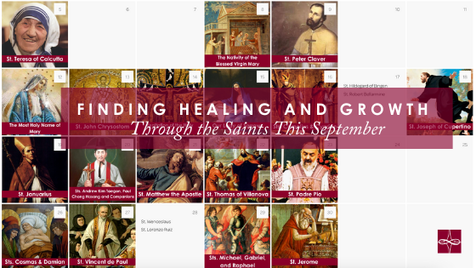



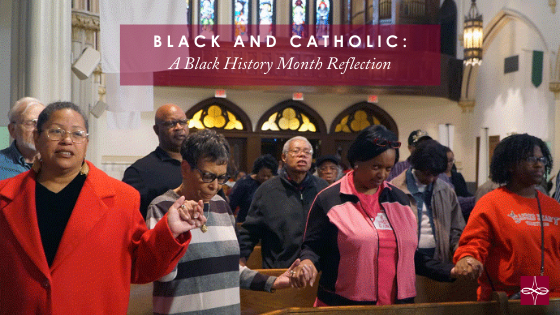
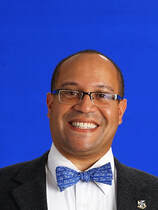
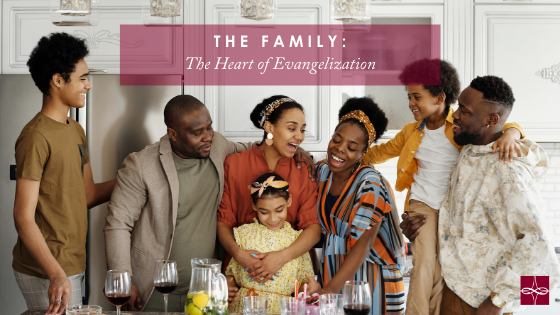

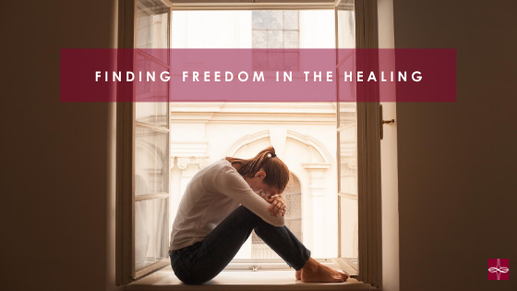



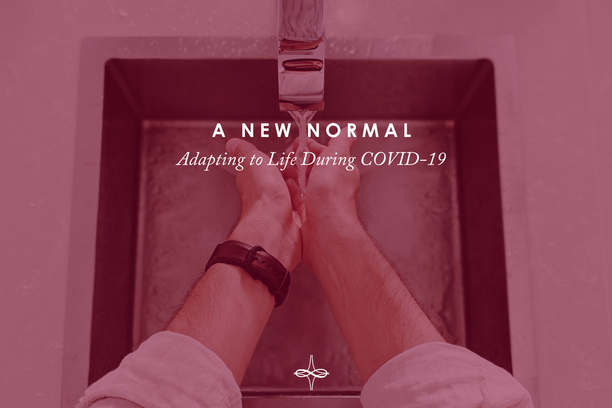
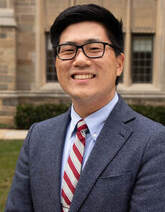
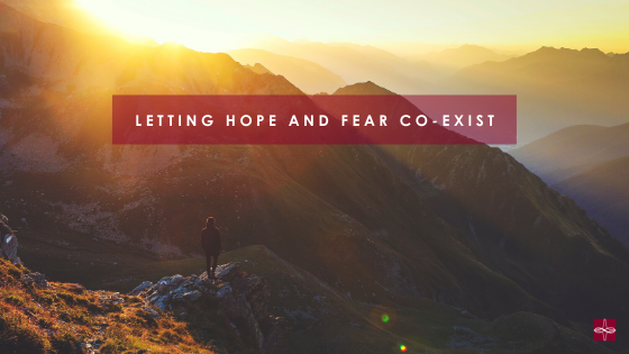

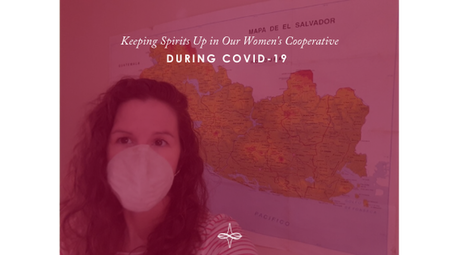

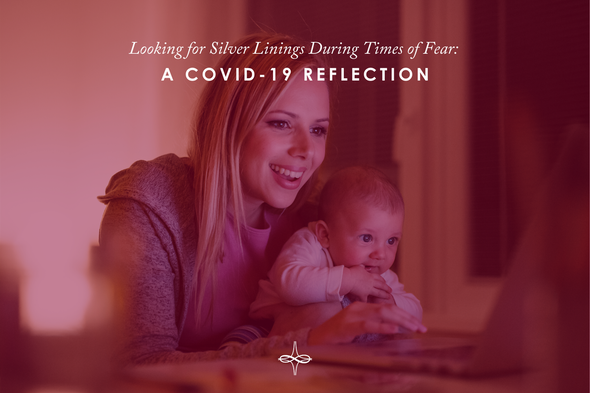

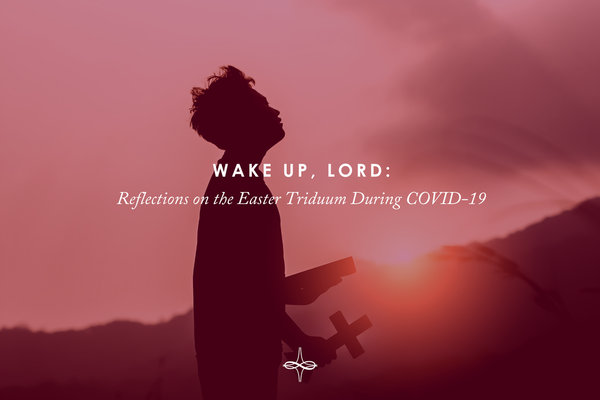

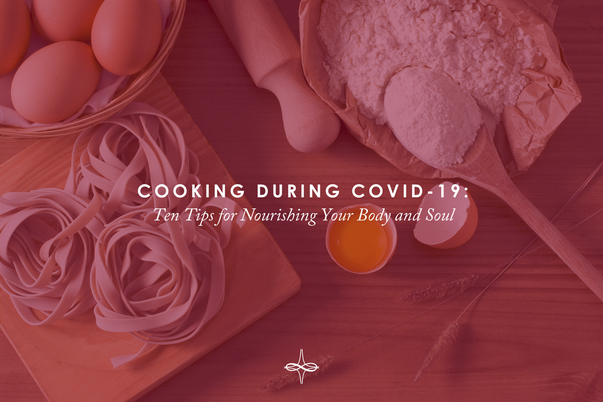
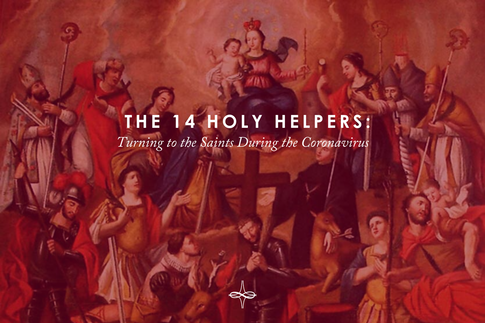
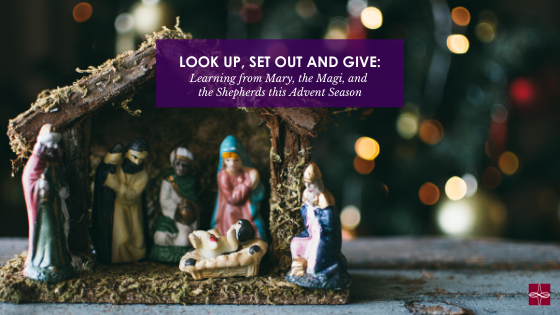
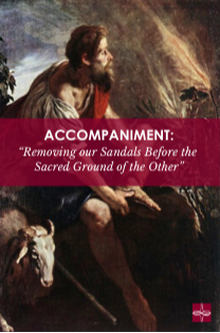
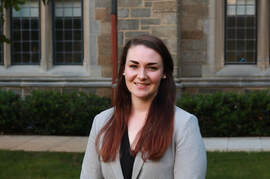
 RSS Feed
RSS Feed